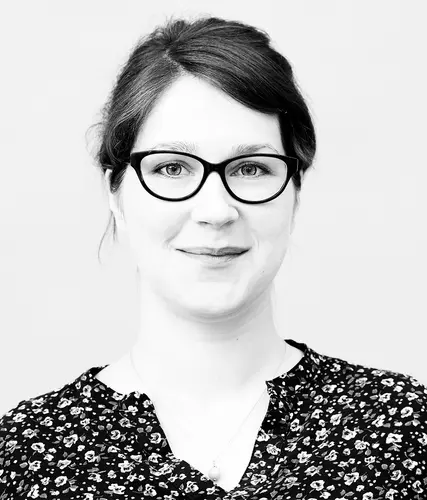RESEARCH INSIGHT ▼
Social-Class-Achievement Gaps among University Students
AN INTERVIEW WITH FRIEDERIKE SCHLÜCKER

:::::::::::::::::::::::::::::::::::::::::::::::::::::::::::::::::::::::::::::::::::::::::::::::::::::
SHORT PROFILE
Name: Friederike Schlücker
Field: Sociology
Research Interests: Higher Education, Social Inequality, Quantitative Research Methods
:::::::::::::::::::::::::::::::::::::::::::::::::::::::::::::::::::::::::::::::::::::::::::::::::::::
After her successfully completed dissertation, BAGSS conducted an interview with Friederike to talk about her thesis and her experiences during her time at the BAGSS.
// What drew you to your dissertation topic and what interests you most about it?
F.S.: During the course of my studies, I have developed an interest in higher education research. I worked on fertility decisions of university students in my bachelor’s thesis and originally wanted to investigate in my masters’ thesis whether the social background of university students matters for their study success. However, I used this research idea for my proposal for the BAGSS doctoral scholarship and investigated in my master’s thesis, which role university-specific social capital plays for taking up doctoral studies.
In developing my proposal, I quickly realized that I had to collect my own data on university students, which was a great advantage for my research because I could empirically test my hypothesis on theoretically well-grounded data that was tailored to my exact needs. It was also beneficial for my own skill development as I learned all processes of designing, collecting and publishing scientific data. Other researchers can use my dataset “Estud” on more than 18.000 students from 18 universities in Germany for their research, it is available as Scientific Use File at the Research Data Center of the German Center for Higher Education Research and Science Studies (DZHW) (10.21249/DZHW:est2016:1.0.0 ).
// Can you give us a small sneak peek about the findings of your thesis?
F.S.: The aim of my dissertation is to describe the extent and for what reasons the academic performance of university students differs according to social background. I find that the so-called social-class-achievement gaps exist among university students in Germany, where students whose parents are higher educated, outperform students whose parents hold lower educational degrees. However, GPA differences tend to be small in size and are not found in all subjects and degree types.
The main part of my study is devoted to the explanatory mechanisms behind it. I identify and measure performance-related factors that are at the same time associated with students' social background. When considered jointly, differences in high school grades and academic competence beliefs ultimately explain the academic achievement advantage of children from academic households. Thus, I find a lingering primary effect in tertiary education.
// What did you enjoy most about your time at the Graduate School?
F.S.: Most of all, I enjoyed the pleasant working environment with other researchers who were pursuing the same goal.
Looking back, it was a good place to focus exclusively on my own research and develop methodological and professional skills. I really enjoyed the close relationships with people (students, professors, and staff) at BAGGS and the professional exchange. Also, the social activities (Office Olympics) that we organized were fun and helped us connect. Thanks to the interdisciplinary approach, I learned a lot about other disciplines, e.g. in the colloquia. Last but not least, the additional funding opportunities have greatly improved my fieldwork and the quality of my data and helped me share my research and exchange knowledge at international conferences.
// What is the next step in your career?
F.S.: After my time as a "PhD only" student at BAGSS, I have been working at the Leibniz Institute for Educational Trajectories (LIfBi) in Bamberg, where I contribute my expertise in data collection and provision. I have also acquired extensive coordination skills through my fieldwork, which currently benefit me in coordinating projects for the Consortium for the Social, Behavioral, Educational and Economic Sciences (KonsortSWD). Since I like working in scientific institutions, I can imagine working there in the future, provided that the many advantages outweigh the disadvantages of fixed-term contracts for me. Nonetheless, I am ready to apply my skills outside academia.